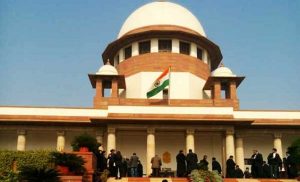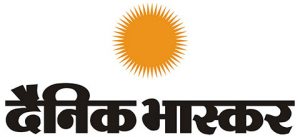
07-07-2017 (Important News Clippings)
To Download Click Here.
After Karnan case
While SC raises questions about appointing EC, judicial appointments await reform
TOI Editorials

Achal Kumar Joti took charge as the new chief election commissioner of India yesterday and he has the big responsibility to move at proper pace to ensure that by 2019 all EVMs will have a voter verifiable paper audit trail. Instead of getting involved in EC appointments SC priority should be to attend to how more than one and a half years after striking down the National Judicial Appointments Commission Act while admitting the need to rectify the collegium system to appoint judges, a new mechanism still hasn’t been scripted. With the fresh memorandum of procedure (MoP) still to be finalised, filling of judicial vacancies has become an unseemly tussle with the Centre.
The need for better processes to appoint and remove judges has returned to the spotlight after judges struggled to discipline the just retired Justice CS Karnan. Much before this episode, a collegium member, Justice J Chelameswar, had criticised the collegium’s functioning and lack of transparency. The Karnan case should really provide a spur for change. SC and government must not delay the finalisation of the MoP any further. India needs a system where only meritorious judicial candidates are appointed and errant judges are punished.
Focus on political funding is a welcome move
ET Editorials
We reiterate that every political party should be mandated to declare the amount of money it spends at every level: from the polling booth to the panchayat, the municipal ward, the district, the state and the nation. Money spent by activists or well-wishers too must be included in the total expenditure.
The spending claim should be allowed to be freely challenged by rival parties, the media and non-government organisations taking into account rallies, posters printed by the party and transport used to ferry leaders and party workers. The Election Commission should arbitrate this challenge and firm up spending at every level. The party then should identify the source of funding to finance this expenditure.The electoral bonds the government has come up with violate the crucial norm of transparency, denying voters the right to know who funds the parties seeking their votes. The government should replace this with transparently disclosed contributions with no absolute upper or lower limits but with an upper bound as to the share of a company’s profits, to prevent shell companies being used for routing funds to parties.
राज्यपाल मर्यादा का ध्यान रखें, ममता माहौल न बिगाड़ें
पैगंबर हजरत मोहम्मद के बारे में फेसबुक पर आपत्तिजनक टिप्पणी के विरुद्ध उत्तरी 24 परगना के बशीरहाट में हिंसा का भड़कना और फिर राज्यपाल केसरीनाथ त्रिपाठी और मुख्यमंत्री ममता बनर्जी के बीच विवाद को देखकर लगता है जैसे सारी घटनाएं तैयार पटकथा के मुताबिक हो रही हैं। इन घटनाओं से स्पष्ट है कि ममता बनर्जी के शासन में अल्पसंख्यक समाज को तीखी प्रतिक्रियाओं की छूट मिली हुई है और उसी का लाभ उठाकर भाजपा अपने संगठन और केंद्र के प्रतिनिधि राज्यपाल के माध्यम से बहुसंख्यकों को अपने पक्ष में गोलबंद कर रही है। इससे पहले मालदा में व्यापक सांप्रदायिक घटनाएं घटी थीं। इन घटनाओं के दो आयाम हैं। एक तो सोशल मीडिया पर टिप्पणी के माध्यम से अल्पसंख्यक समाज को उकसाने की कोशिश और उस पर उनका उग्र विरोध। दूसरा आयाम है राज्य सरकार के कामकाज में कानून और व्यवस्था के बहाने राज्यपाल का हस्तक्षेप। पहला आयाम कानून-व्यवस्था और समाज की मानसिकता से जुड़ा है तो दूसरा आयाम संविधान से। एक के बारे में बिहार के मुख्यमंत्री नीतीश कुमार की उस बात पर गौर करना चाहिए, जिसमें उन्होंने कहा है कि केंद्र की भाजपा सरकार के बारे में विपक्ष को प्रतिक्रियात्मक रणनीति से बचना चाहिए। उसकी बजाय उसे रचनात्मक वैकल्पिक एजेंडा तैयार करना चाहिए। ममता बनर्जी और अल्पसंख्यक समाज इस बात को समझ नहीं पा रहा है और अपनी उग्र प्रतिक्रियाओं के माध्यम से वह इस आरोप को साबित कर रहा है कि पश्चिम बंगाल के अल्पसंख्यक समाज में कट्टर और उग्रवादी तत्व सक्रिय हैं। लेकिन एनडीए सरकार की तरफ से नियुक्त राज्यपालों की अतिरिक्त सक्रियता उस कांग्रेसी शासन की याद दिलाती है, जब राज्यपालों ने राज्य की स्वायत्तता को खत्म करने के लिए कोई कसर नहीं उठा रखी थी। त्रिपुरा के राज्यपाल तथागत राय, पुडुचेरी की उपराज्यपाल किरण बेदी से लेकर उत्तराखंड और गोवा सभी जगहों पर राज्यपालों की भूमिका संविधान की मर्यादाओं का उल्लंघन करने वाली रही है। इसलिए पश्चिम बंगाल के राज्यपाल को सरकारिया आयोग की सिफारिशों के अनुरूप अपनी मर्यादा का पालन करना चाहिए लेकिन, ममता बनर्जी को केंद्र सरकार के विरोध के अतिउत्साह में अपने राज्य के सांप्रदायिक माहौल को नकारात्मक दिशा में जाने से रोकना चाहिए।
स्थायी हल
संपादकीय
केंद्र सरकार ने अपनी उज्ज्वल डिस्कॉम एश्योरेंस योजना (उदय) का ठोस बचाव किया है। उदय योजना की शुरुआत नवंबर 2015 में की गई थी। इसका लक्ष्य था कर्जग्रस्त सरकारी बिजली वितरण कंपनियों को राहत प्रदान करना। उचित शुल्क के अभाव में ये कंपनियां भारी भरकम घाटे की शिकार थीं। उदय योजना में दो प्रमुख मानकों पर ध्यान दिया गया। पहला, वित्तीय सुधार लाना। इसके लिए यह योजना लाई गई कि कंपनियों का कर्ज राज्य सरकारों के खाते में डाला जाए ताकि कंपनियां नई बिजली खरीद सकें। दूसरा, परिचालन के मोर्चे पर सुधार करना। इसमें पारेषण नुुकसान कम करना और बकाया वसूली की स्थिति में सुधार करने समेत अन्य उपाय शामिल हैं। खबरों के मुताबिक 16 राज्यों के उदय योजना में शामिल होने के बाद बिजली वितरण कंपनियों को 2 लाख करोड़ रुपये के बकाया कर्ज के ब्याज भुगतान में 12,000 करोड़ रुपये की बचत की संभावना है। बिजली मंत्रालय के मुताबिक वर्ष 2016-17 में देश भर में बिजली बिलों में 2 फीसदी की किफायत आई है। जबकि औसत तकनीकी और वाणिज्यिक नुकसान घटकर 20.2 फीसदी रह गया है। इतना ही नहीं औसत आपूर्ति लागत और औसत राजस्व प्राप्ति के बीच का अंतर भी वर्ष 2015-16 के 59 पैसे से घटकर वर्ष 2016-17 में 45 पैसे रह गया। ऐसा ब्याज में कमी, बेहतर शुल्क दर और बिलिंग व्यवस्था के चलते हुआ।
A misused power
AFSPA must be repealed from states like Assam and Arunachal Pradesh where insurgent groups have been contained
The Centre is reportedly considering the repeal of the Armed Forces (Special Powers) Act from parts of Assam and Arunachal Pradesh. This step is long overdue. The law and order situation in both these states, once majorly impacted by insurgencies, no longer warrants the Act. For nearly a decade, both these states have successfully contained the many violent separatist movements that had devastated the region. The time has now come for the AFSPA to be lifted and for authority to be fully restored to the civil administration.
The AFSPA, derived from the colonial era Armed Forces (Special Powers) Ordinance, 1942, was first introduced in 1958 to counter the Naga rebellion in Assam and parts of Manipur. Over the years, it has provided legal cover to military operations in “disturbed areas” in the entire Northeast, including Arunachal Pradesh, Assam, Manipur, Meghalaya, Mizoram, Nagaland and Tripura. Security personnel operating under the AFSPA have powers that override the civil administration.
This was deemed essential to counter the numerous well-equipped militant groups which threatened the sovereignty of the Indian state and disturbed public order in the region. Over the years, a judicious use of military might and negotiating skills has enabled the Indian state to subdue them and, in many cases, convince their leaderships to join the political mainstream.
But the AFSPA has survived these insurgencies. At various moments, the constitutionality of the law as well as human rights violations by the armed forces operating under its cover have been questioned by the judiciary, state commissions and civil society. The courts and commissions have suggested procedural checks, but ducked disturbing questions about the extra-judicial powers the security establishment assumes under the Act and its consequences. The onus, hence, is now on the political establishment to reward peace in the region by repealing the law.Two years ago, the Manik Sarkar government in Tripura repealed the Act after 18 years on the ground that militants are no longer active in the state. A similar situation prevails in Assam and Arunachal, where in the past decade or so, many militant groups, including the most influential of them, the ULFA, have negotiated peace with the state and joined the electoral process. Barring a handful of groups, like the Paresh Baruah faction of the ULFA, the threat from militancy is minimal in Assam and Arunachal Pradesh. Any further continuation of this law will only undermine the argument that the AFSPA is a contingency measure to counter insurgency, and not an essential feature — or scar — of the Indian state’s democratic imagination.
Date:06-07-17
The same governor
BJP carries on — and adds to — Congress tradition of blatant politicisation of the high office
The war of words between West Bengal Chief Minister Mamata Banerjee and the state’s governor, Keshari Nath Tripathi, is an indication of how a constitutional office meant to rise above the political melee has become mired in controversy. After communal tensions broke out in North-24 Parganas, Banerjee accused the governor of “insulting and threatening” her and acting like a “BJP block president”, while Tripathi has denied the allegations. But the unseemly stand-off between the two high offices is neither the first of its kind in West Bengal nor limited to the state.
Examples abound of governors appointed by regimes led by the Congress earlier and the BJP now going beyond their constitutionally mandated — and circumscribed — role. Even so, the current rash of controversies involving Raj Bhavans is striking. Tripura Governor Tathagata Ray has tweeted statements that could be called communally polarising: In June, he quoted Hindu Mahasabha leader Syama Prasad Mookerjee as saying that the “Hindu-Muslim problem” can be solved only by “civil war” and then, asked the Hindus of West Bengal to “polarise” or “prepare to be annihilated”.
In Puducherry, in June, Lt Governor Kiran Bedi — once the BJP candidate for Delhi CM — reportedly by-passed the Union Territory’s elected government by giving direct instructions to officers. The legislature, in a symbolic action, passed a resolution giving absolute powers to the government. This week, Bedi administered the oath of office to three MLAs appointed by the Centre — a function usually carried out by the assembly Speaker. Perhaps the most high-profile governor-government conflict was played out in Delhi between Arvind Kejriwal and former LG Najeeb Jung (a UPA appointee), ranging from the functioning of the city-state’s Anti-Corruption Bureau to the appointment of bureaucrats and even during an outbreak of vector-borne diseases in the capital last year. The discretionary powers of governors — in the appointment of a government after an unclear or fragmented mandate — have also routinely courted controversy, as after the Goa and Manipur elections earlier this year.
Over time, the Raj Bhavan has become a retirement home for ageing politicians or a reward for political fellow travellers. Successive Union governments have transformed a position of moral authority to one of a political agent. An oft-heard — and unpersuasive — response from the BJP to this criticism has been to cite instances of similar partisanship in the past. The NDA government must realise that the actions of its appointees diminish the office they have taken an oath to uphold.
Speaking the language of change?
The World Bank’s reports show that social movements may be shaping the bank’s language
The World Bank’s ‘World Development Report 2017: Governance and the Law’ is a remarkable document. Remarkable, because it is hard to believe that the World Bank authored this document. When the report cites Michel Foucault — that incandescent French thinker, who showed us how supposedly free and rational institutions of modernity are indissolubly linked with power and social control — it is time to pay attention.
Politics and power
The report focusses on politics and power in development policy, and endeavours to move them “from the margins to the core of development thinking and action”. Essentially, this goes against the soul of seven decades of development thinking — technocracy: reliance on capital, technology and (Western) experts and supposedly above politics and power — perpetrated by international financial institutions (IFIs)/development agencies controlled by the Global North.
Contrast the report with scholar Bruce Rich’s assessment of the World Bank during the presidency of Robert McNamara when the bank expanded phenomenally: “McNamara’s grandiose vision involved a wager that was indeed Faustian — a risky experiment with life and nature, using simplistic technologies, and a fatal hubris about the bank’s ability to know, plan and direct the evolution of human societies and the natural systems they depend on.” This Faustian notion informed development projects in the Third World, whether inspired by the imagination of American economist W.W. Rostow in the 1960s, or that of neoliberal capitalist policy prescriptions of the Washington Consensus from the 1980s.
Reading the report in this context is like reading a treasure trove of ironies. There is a lot in it for those who oppose development as technical fixes and as Northern imperialism. The report, remarkably, emphasises public goods and public spending on health, education and infrastructure. It expresses concern that inequalities are growing, that inequality has a multiplier effect, and stresses that “ultimately, growth and inequality are jointly determined”.
For the report, development is not the expansion of economic freedom, but following Amartya Sen, is the removal of all kinds of “unfreedoms” so that governance delivers the three goals of security, growth and equity achieved in ecologically sustainable ways. The report also gives a nuanced account of the democratisation processes. It has a useful survey of elites from 12 countries. The report’s comparative scope is one of its strengths, giving interesting facts such as how multi-party elections led to the reduction of infant mortality rates in Sub-Saharan Africa!
This reinforces what critics of the World Bank and other IFIs have always argued — that there is no solution to problems of development but substantive democracy. But the most important question is what has changed since the days when the bank, as Rich documents, applauded the Communist dictator Ceauşescu’s centralised economic control and state planning and helped Romania become one of its largest borrowers.
The answer lies in reading the World Bank report as a social document. It is not just about the World Bank studying society, but turning the lens back on the World Bank. The bank is not detached from but is a part of the same social processes that it describes. Ironically, then, we have to follow the report’s prescriptions: “taking politics seriously in development points directly to the need to challenge the interests of the power holders that control institutions — something that many development organizations have not yet decided they are willing to do”.
What is different from four decades ago is that the bank is also responding to multifarious challenges to the development hegemony of the North (secured also by the participation of Southern elites). This hegemony ensured that the bank has always been headed by white American males (until the current president) when the planet is virtually kept alive by women who constitute 60% of the agriculture force in Asia and Africa. Unsurprisingly, many World Bank presidents previously worked in defence departments and private corporations.
The resistances by social movements have led the bank to speak the language of the people. Hence, the increasing focus on issues such as gender rights, equity (the 2006 report was titled ‘Equity and Development’), etc. Besides, the rise of China and India and their decreasing reliance on the bank makes the latter less powerful than before. Thus, acknowledging politics and power relations is one way to defuse the challenges to the bank’s dominance.
There is a telling statement in the report: “The development community is talking the talk of politics. How much it will walk the walk is not yet clear.” Ultimately, the question is whether the World Bank itself is willing to walk the walk. A 2015 United Nations Report called the World Bank as a “human rights-free zone” and that its policies consider “human rights more like an infectious disease than universal values and obligations”.
Perhaps, it is time for those who control the World Bank to read its own ‘World Development Report 2017’.





